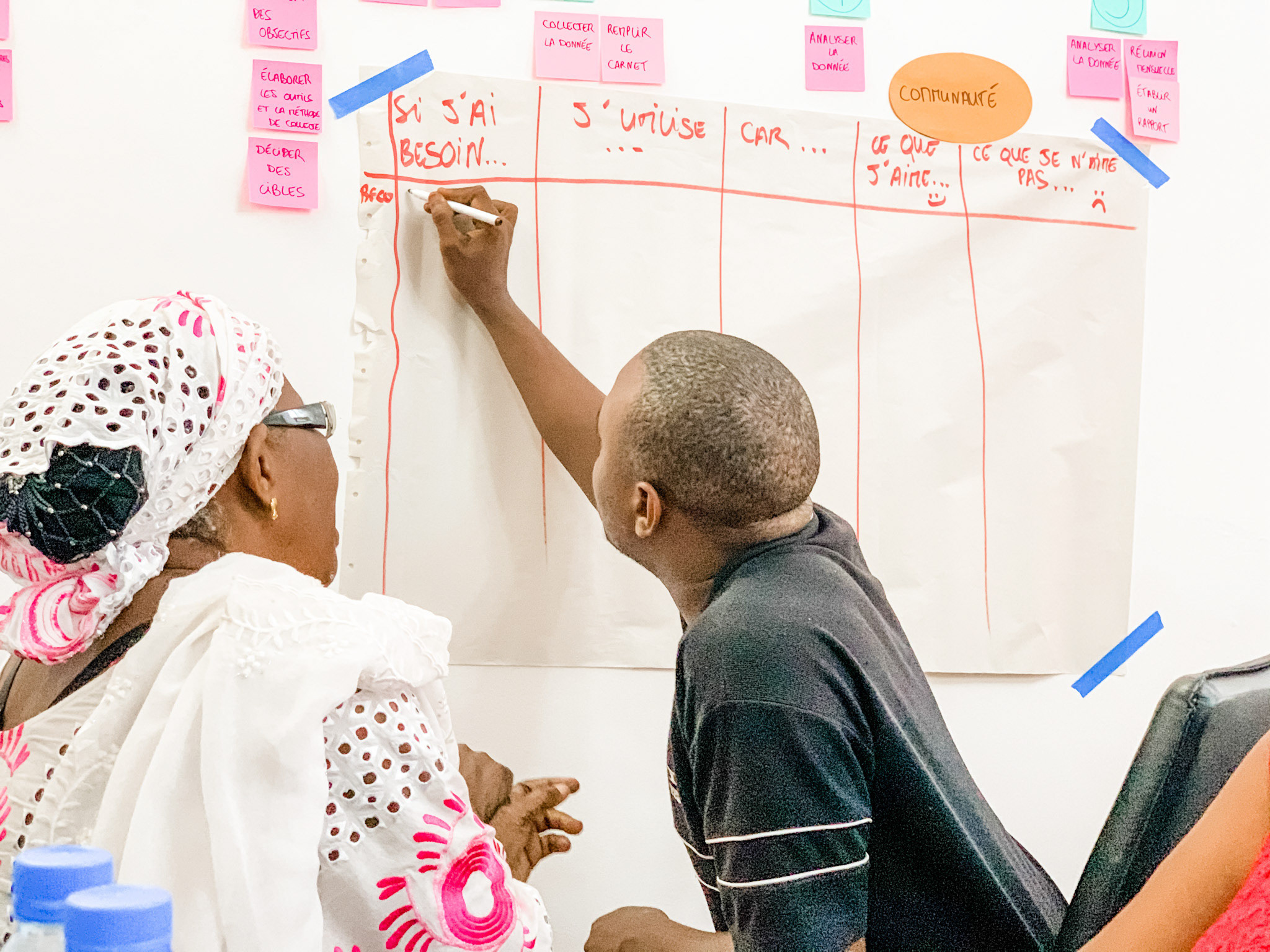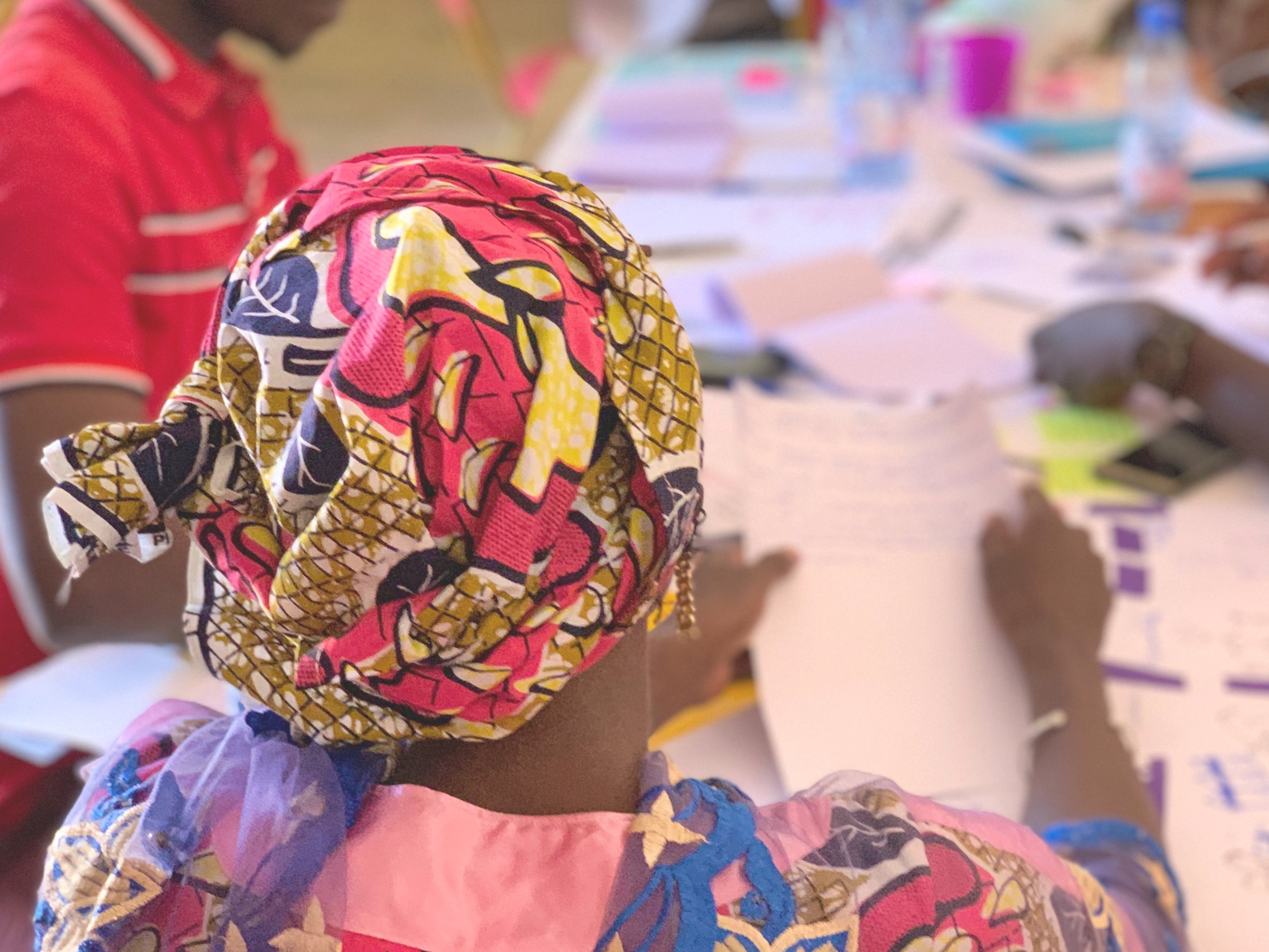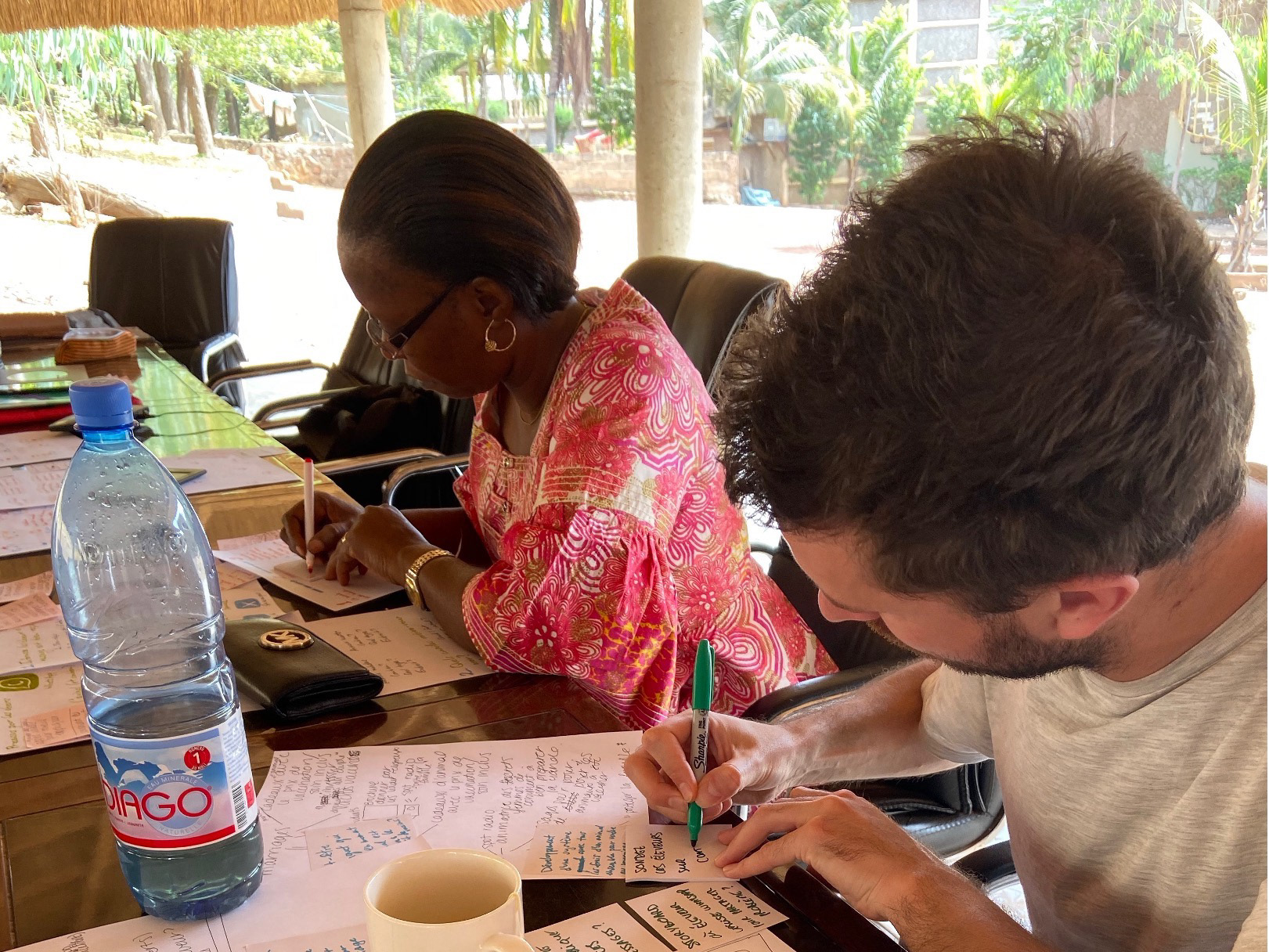Client: Breakthrough ACTION | Year: 2019
Context
As part of efforts to address priority zoonotic diseases in Mali, I partnered with Breakthrough ACTION to strengthen communication between communities and national risk communication structures. The project focused on fostering inclusive, two-way dialogue that would support better health outcomes through increased trust, ownership, and shared understanding between community members and the health system.
As part of efforts to address priority zoonotic diseases in Mali, I partnered with Breakthrough ACTION to strengthen communication between communities and national risk communication structures. The project focused on fostering inclusive, two-way dialogue that would support better health outcomes through increased trust, ownership, and shared understanding between community members and the health system.
Goals
The core objective was to cultivate meaningful engagement and build a foundation for informed, collective decision-making in the realm of public health. By enabling bi-directional communication, we aimed to support more responsive interventions and reinforce community ownership over health outcomes, particularly in relation to zoonotic disease prevention and response.
The core objective was to cultivate meaningful engagement and build a foundation for informed, collective decision-making in the realm of public health. By enabling bi-directional communication, we aimed to support more responsive interventions and reinforce community ownership over health outcomes, particularly in relation to zoonotic disease prevention and response.
Methods
To equip the team with the necessary tools for qualitative insight generation, I organized and led a comprehensive capacity-building workshop on qualitative research methods. This training supported a structured and rigorous research phase across diverse communities.
To equip the team with the necessary tools for qualitative insight generation, I organized and led a comprehensive capacity-building workshop on qualitative research methods. This training supported a structured and rigorous research phase across diverse communities.
We then conducted in-depth user research with a wide range of participants—including community members, healthcare providers, religious leaders, and other key influencers—to capture a holistic understanding of the barriers and opportunities surrounding zoonotic disease communication and response.
Insights from the research informed a co-design workshop that brought together community and system-level stakeholders to collaboratively shape solutions. The workshop culminated in the creation of a 3-phase implementation roadmap, outlining prioritized and contextually grounded interventions. This iterative approach ensured that solutions reflected the perspectives and lived experiences of those most affected.
Outcome
The project successfully catalyzed greater stakeholder alignment and built momentum for sustainable, community-driven action. The interventions co-developed through the process fostered a sense of shared purpose and ownership among participants, creating a solid foundation for continued implementation.
The project successfully catalyzed greater stakeholder alignment and built momentum for sustainable, community-driven action. The interventions co-developed through the process fostered a sense of shared purpose and ownership among participants, creating a solid foundation for continued implementation.
The project also established a replicable model for collaborative public health strategy—demonstrating how inclusive dialogue and participatory design can drive trust, accountability, and improved health outcomes in complex social and epidemiological contexts.
Testimonial
"Ben consistently demonstrated an impressive understanding of user-centric methodologies and behavioral design principles, which greatly contributed to the success of our projects. His ability to navigate the complexities of the Francophone African market with respect and acknowledgement of his role as a Designer was invaluable. This ensured that our solutions were not only innovative but also culturally relevant and impactful. He approached every task with enthusiasm, creativity, and meticulous attention to detail, producing high-quality work under tight deadlines. His collaborative nature and strong communication skills fostered a positive team dynamic, making them a pleasure to work with."
- Juanita Rodriguez, Senior Strategic Designer
"Ben consistently demonstrated an impressive understanding of user-centric methodologies and behavioral design principles, which greatly contributed to the success of our projects. His ability to navigate the complexities of the Francophone African market with respect and acknowledgement of his role as a Designer was invaluable. This ensured that our solutions were not only innovative but also culturally relevant and impactful. He approached every task with enthusiasm, creativity, and meticulous attention to detail, producing high-quality work under tight deadlines. His collaborative nature and strong communication skills fostered a positive team dynamic, making them a pleasure to work with."
- Juanita Rodriguez, Senior Strategic Designer









